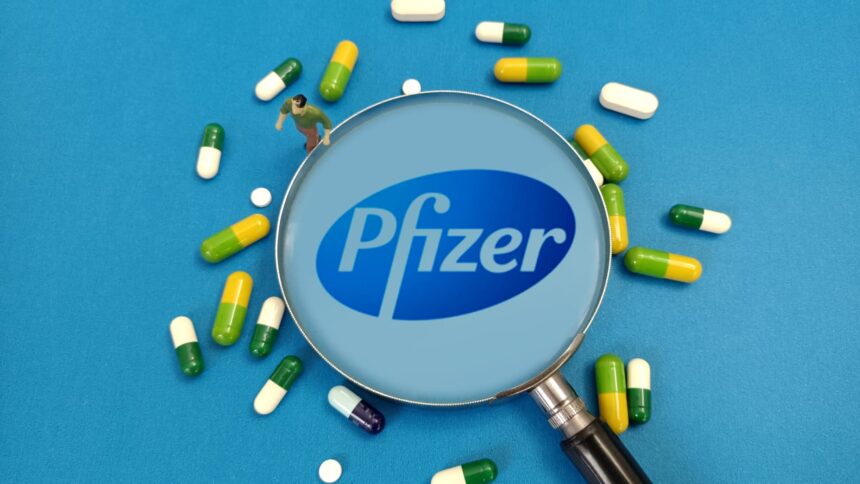Introduction to Pfizer
Pfizer is a name that resonates across the globe.
Known for its groundbreaking contributions to medicine and healthcare, this pharmaceutical giant has been at the forefront of innovation for over 170 years.
From life-saving vaccines to cutting-edge therapies, Pfizer’s impact is undeniable.
But how did it rise to such prominence? What challenges has it faced along the way? This comprehensive guide will take you on an intriguing journey through Pfizer’s history, its notable products, and the controversies that have shaped its legacy.
Whether you’re a healthcare professional or simply curious about one of the world’s largest pharmaceutical companies, there’s much to discover about Pfizer and its role in global health advancement.
The History and Evolution of Pfizer
Pfizer was founded in 1849 by Charles Pfizer and his cousin, Charles F. Erhart, in Brooklyn, New York. Initially, they specialized in producing fine chemicals. Their first major product was an antiparasitic called santonin.
As the years progressed, Pfizer expanded its operations significantly. The company began developing innovative pharmaceuticals during World War II. This era marked a pivotal shift as it started focusing on antibiotics and other essential medicines.
The introduction of penicillin revolutionized antibiotic treatment and positioned Pfizer as a leader in the pharmaceutical industry. By the 1950s and 1960s, they diversified further into various therapeutic areas.
Throughout the decades, strategic mergers and acquisitions propelled their growth trajectory. This evolution not only broadened their product portfolio but also strengthened their global presence within healthcare markets around the world.
Notable Products and Achievements
Pfizer has a rich portfolio of pharmaceutical products that have significantly impacted health worldwide. Among its most famous drugs is Viagra, which transformed the treatment of erectile dysfunction and became a cultural phenomenon.
Another groundbreaking achievement was the development of Lipitor, one of the best-selling medications for lowering cholesterol levels. It played a crucial role in managing heart disease risk for millions.
In recent years, Pfizer gained global attention for its COVID-19 vaccine developed in partnership with BioNTech. This mRNA vaccine showcased rapid innovation and effectiveness against the virus during an unprecedented pandemic.
The company also introduced Prevnar, a pneumococcal vaccine that protects against serious infections in children and adults alike. Each product highlights Pfizer’s commitment to research and improving public health outcomes globally while addressing pressing medical needs.
Controversies and Challenges Faced by Pfizer
Pfizer’s journey hasn’t been without its share of turbulence. The pharmaceutical giant has faced scrutiny over pricing strategies, particularly for life-saving medications. Critics argue that high costs limit access for many patients.
Legal challenges have also plagued Pfizer. The company has dealt with lawsuits related to product safety and marketing practices. These legal battles often draw public attention, raising questions about trustworthiness.
Additionally, the rapid development of the COVID-19 vaccine brought both acclaim and criticism. While many praised Pfizer for its swift response, others questioned transparency in clinical trials. Misinformation around vaccines further complicated their image during this pivotal time.
Navigating regulatory hurdles is another challenge. Adhering to stringent guidelines while innovating can be a delicate balance for any large corporation in healthcare like Pfizer, leading to delays or setbacks in bringing new products to market.
Impact on Global Healthcare
Pfizer’s influence on global healthcare is profound. Its innovative vaccines and medications have transformed treatment protocols worldwide. The company played a pivotal role in the fight against major diseases, providing solutions that save countless lives.
The COVID-19 pandemic showcased Pfizer’s capabilities like never before. Their vaccine became a symbol of hope, demonstrating how rapid research and development can lead to breakthroughs in urgent situations.
Moreover, Pfizer invests heavily in accessibility programs. These initiatives aim to provide medicines at reduced costs in lower-income regions. By partnering with governments and organizations, they strive to ensure equitable access to vital therapies.
Their commitment extends beyond just products. Pfizer actively engages in public health campaigns addressing pressing issues such as antibiotic resistance and chronic diseases. This holistic approach positions them as not just a pharmaceutical giant but a key player in shaping future health landscapes across the globe.
Future Plans and Innovations
P,fizer is gearing up for a transformative era in healthcare. With advancements in biotechnology, the company aims to enhance its vaccine development process significantly. This could lead to quicker responses during health crises.
The focus on mRNA technology continues to be a game-changer. P,fizer plans to expand this platform beyond COVID-19 vaccines, targeting other infectious diseases and even cancer treatment options.
Artificial intelligence is also on the agenda. Leveraging AI will streamline drug discovery and improve patient outcomes by personalizing treatments based on genetic insights.
Sustainability remains crucial for P,fizer’s vision too. They are investing in eco-friendly practices throughout their production processes, ensuring that innovation goes hand in hand with responsibility.
As global health needs evolve, P,fizer’s commitment to research and innovation positions it as a leader ready to tackle emerging challenges head-on. The future looks promising with new solutions just around the corner.
Conclusion
Pfizer stands as a significant player in the global pharmaceutical landscape. Its journey from a small chemical company to a leading innovator showcases resilience and adaptability. The company’s notable products, including groundbreaking vaccines and medications, have made profound impacts on public health.
However, like many corporations of its size, P.fizer has faced controversies that challenge its reputation. Navigating these issues while continuing to deliver life-saving treatments is no easy task. Yet, through it all, P.fizer remains committed to advancing healthcare solutions worldwide.
Looking forward, P.fizer’s future plans indicate an ongoing dedication to innovation and research. As new challenges arise in the healthcare sector, the company’s ability to adapt will be crucial.
The story of P.fizer reflects not just its achievements but also the complexities inherent in modern medicine and corporate responsibility. It invites us all to consider how companies can balance profit with purpose while contributing meaningfully to society’s well-being.




